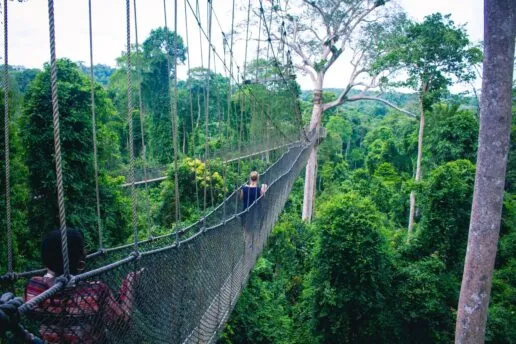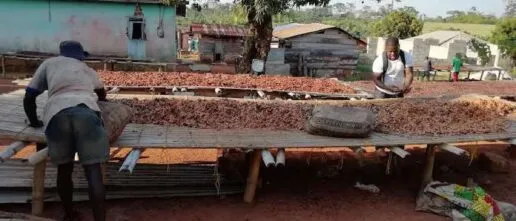About
This work will be conducted in both the UK and Ghanaian case study landscapes. It will include literature review, the development of conceptual frameworks for the integration of the social dimensions of land use into ecological maps, and the piloting of new forms of inclusive social ecological mapping.
The core purpose of the project is to ‘get social issues on the map’ of nature recovery. Making social issues visible is critical to:
- better understand the drivers of land use and nature recovery, and
- enable the integration of social values and local participation into land use mapping, monitoring and priority-setting for land use policy and practice.
Background/rationale
The ecological mapping of nature recovery to meet ecological goals and targets is advancing at a rapid pace, enabled by advances in remote sensing and other monitoring technologies and incentivized by the promise of payments for ecosystem service and other financial mechanisms. A strong focus of this work has been on assessing changes in tree cover to address deforestation in the tropics and efforts at reforestation and afforestation in the Northern hemisphere. More recently, advances in sensor technologies and Artificial Intelligence (AI) have enabled more nuanced analysis of vegetative change, ‘ecosystem health’, biodiversity and other biophysical variables.
However this ecological data alone tells us little about the social dynamics that shape these land use patterns. Furthermore, the technologies and analyses used are often ‘expert-driven’ and inaccessible and/or inscrutable to the communities living within these mapped landscapes.
This project will address these challenges by exploring the opportunities and risks of:
1) integrating social and ecological data and
2) combining scientific and participatory approaches that recognize local and traditional knowledge.
Related News Articles
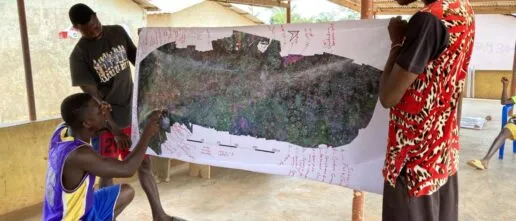
Beyond the Sensor: Building Blocks for Equitable Nature Recovery
Dr Eric Mensah Kumeh Remote sensing has been around for almost 150 years, with the earliest forms of remote sensing dating back to the 1800s. The first aerial photographs were taken in 1858 by Gaspard-Félix Tournachon, also known as Nadar, using a hot air balloon. Remote sensing is important because it provides a way to […]
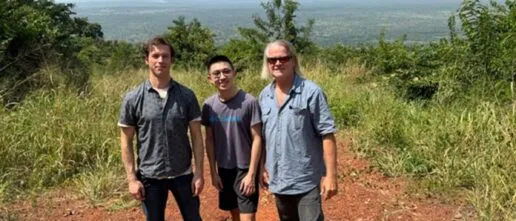
Mapping land use in the 1950s for a nature recovery site in Ghana
Our Kwahu nature recovery partners, Nature Conservation Research Centre, Ghana and Ostrom Climate called us for help in assessing historical forest cover around the 1950s, which is critically important for its field forests restoration plan. Learn more about the Kwahu restoration site here. Researchers initially checked LandSat Satellite, which is available up to the 1980s […]
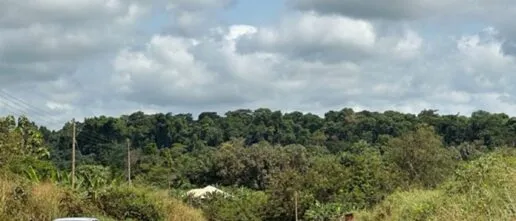
Oxford researchers find African forests even more productive than Amazonia.
Whilst most studies on the ecosystem functioning of tropical forests have focussed extensively on Latin America or Asia, researchers at the University of Oxford say comparing findings with studies in Ghana has produced interesting and differing results showing that more studies need to be made in Africa. Tropical forests cover large areas of equatorial Africa […]
Related Research Themes

Society
Encompassing the governance and socio-cultural dimensions of nature recovery.
Related Projects

Institutional innovations for nature recovery
A power-sensitive and multi-level analysis of institutions involved in pursuing landscape scale nature recovery and their intersection with questions of equity and justice in the UK and Ghana.
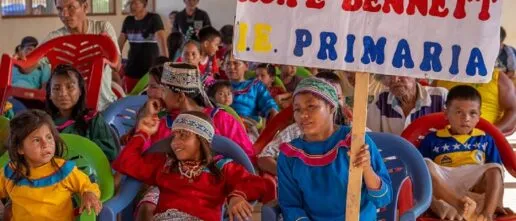
Research at the interface of indigenous and Western science
Empirically applying an intercultural interdisciplinary mapping methodology “Non Oñamboan Joi” for assessing nature recovery potential in the Amazon.
Related Outputs
Equity in unilateral value chain policies: A monitoring framework for the EUDR and beyond
Unilateral value chain policies have recently emerged as a key strategy of international land use governance. They’re part of a broader trend towards trade-based environmental policies, from corporate due diligence to sustainability certification and trade moratoria, that has been critiqued for reinforcing inequities in global trade. Such critique has been heightened by the current rise […]
Just nature recovery: A framework for centring multispecies and multi-dimensional justice in land management
Highlights Justice considerations can be overlooked in the planning and delivery of nature recovery projects. Multispecies justice and multi-dimensional justice offer alternative framings of justice and how it can be achieved. Integrating MSJ and MDJ approaches can inform nuanced analyses of nature recovery projects. We consider the different justice concerns in a range of examples […]
Contrasting carbon cycle along tropical forest aridity gradients in West Africa and Amazonia.
Tropical forests cover large areas of equatorial Africa and play a substantial role in the global carbon cycle. However, there has been a lack of biometric measurements to understand the forests’ gross and net primary productivity (GPP, NPP) and their allocation. Here we present a detailed field assessment of the carbon budget of multiple forest […]
Contestations, counteractions and equitable conservation–a case study of Ghana’s Krokosua Hills Forest Reserve.
This paper delves into the intricate dynamics of forest conservation conflict in rural Ghana, where state-led conservation efforts through forest reserves have met fierce counteractions from local communities within and around the Krokosua Hills Forest Reserve. The study adopts a critical postcolonial institutional framework to examine the historical struggles that have shaped conservation policies in […]
